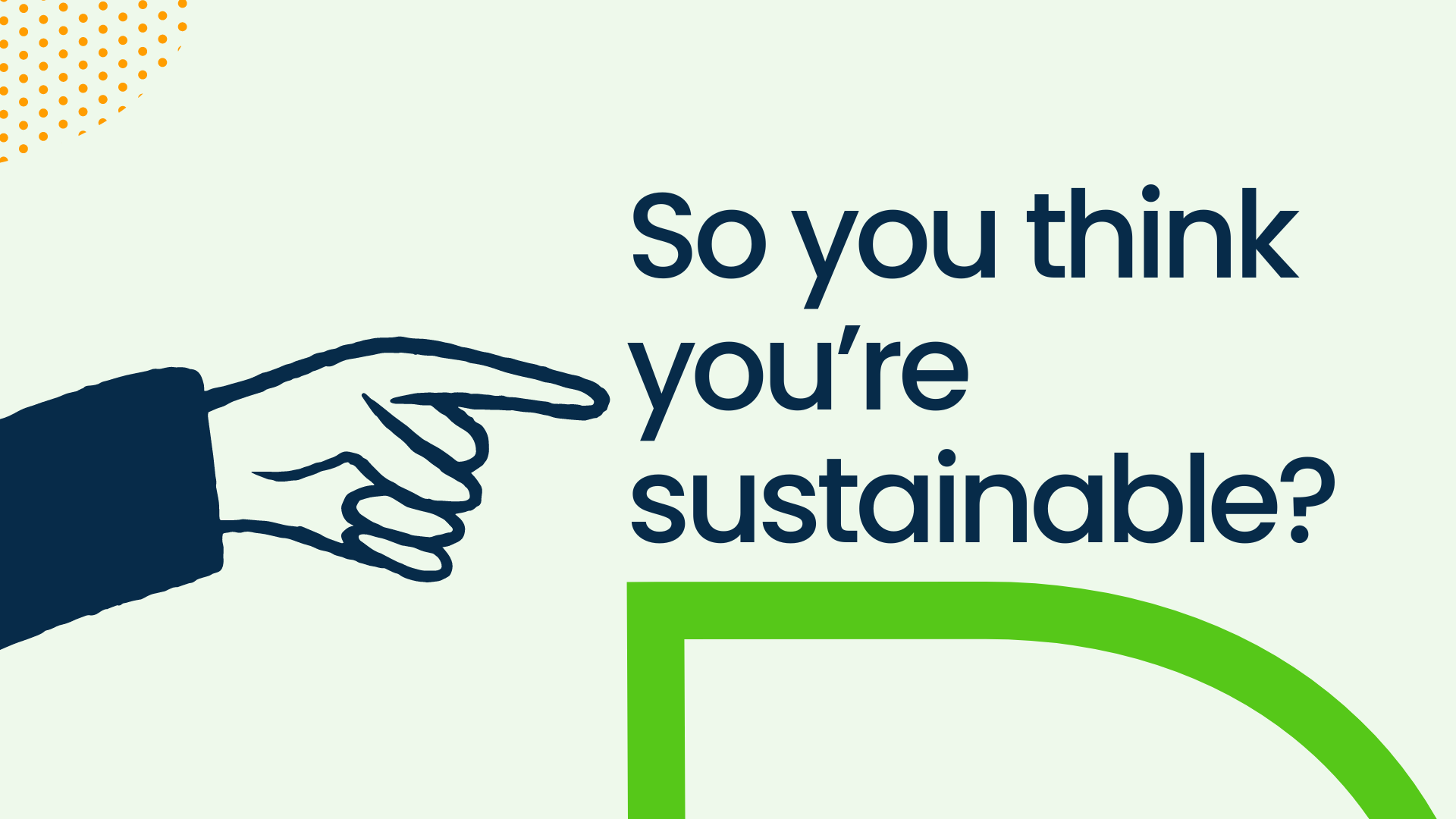What makes something “green” or “sustainable”? Turning cars electric, switching to paper packaging, pouring plant-based milk in your coffee… sustainability has become a dominant talking point in our society, particularly in business marketing practices. The buzz is louder than ever, with companies across all industries touting their green credentials. But how many of these claims are backed by solid data? Many companies proudly declare themselves sustainable, but without proper measurement, these claims are just assumptions, leaving both businesses and consumers in the dark. As new regulations and greenwashing crackdowns loom, it’s clear: assumptions won’t cut it anymore. It’s time to start measuring your true environmental impact to avoid falling into the trap of greenwashing.
“Until you put numbers behind your decisions, everything’s an assumption, and it is difficult to say that you are creating impact, until you have the numbers.” – Brad Vanstone, Willicroft
Governments are now stepping in, demanding transparency and accountability through stricter regulations to enforce “honest advertising,” creating policies to ensure that companies substantiate their sustainability claims with solid data. As new regulations and greenwashing crackdowns loom, it’s clear: assumptions won’t cut it anymore.
It’s time to start measuring your true environmental impact to avoid falling into the greenwashing trap. In this blog, we will explore how businesses can ensure their sustainability claims are reliable by calculating the impact and delivering the proof . We will also include an example from one of our customers to illustrate this process in action.
Beyond targets: measure to make impact
In Europe alone, over 2,000 companies have set science-based carbon targets, and about a third of the region’s largest public companies have pledged to reach net zero by 2050. Yet, simply setting targets or publishing impact reports doesn’t guarantee meaningful action. Many business leaders recognize that sustainability is essential, but without proper measurement, their efforts may be misguided.
Data verification: the key to trustworthy claims
With many companies setting net zero goals and sharing impact reports, the critical question is: how can businesses ensure the accuracy and trustworthiness of their claims? Fortunately, there are methods to verify and validate these claims, although universal standards have yet to be established.
One effective method is data verification.
If you adhere to regulatory standards for your product’s carbon impact, it’s crucial to have your results verified by a certified third-party. This verification process assesses your calculations and validates that your results are reliable and robust.
The quality of your data is key. Collecting primary data directly from your supply chain provides the most accurate information. However, if you lack comprehensive primary data, pre-researched impact databases, or secondary data, can fill the gaps. Secondary data is based on averages and helps companies start their environmental measurements. As you gather more primary data, the precision of your carbon impact results will improve.
By ensuring your data is verified and clearly sourced, you build trust with stakeholders and consumers, demonstrating a genuine commitment to sustainability.
Willicroft: from assumptions to accurate sustainability
Vegan dairy products? Sounds pretty green to me. Meet Willicroft, one of our customers based in Amsterdam, and a B corp dedicated to creating vegan cheese and butter with sustainability at their core. They serve as a prime example of how good intentions, without proper measurement and calculations, can cause misconceptions. Initially, they believed being plant-based automatically meant they were environmentally friendly.
“When we started as a business, we just thought, oh, we’re plant-based, therefore it’s going to be better for the environment.”
After conducting a comprehensive Life Cycle Assessment (LCA), Willicroft discovered significant climate impacts from their key ingredient, cashews.
“Before we started measuring our emissions, we could never state to be an impact-driven business. Every action we took before then was merely based on assumptions.”
This insight led Willicroft to explore alternatives. They chose white beans, which are grown in Europe, reduce transport emissions, are nutritious, and help restore soil by fixing nitrogen. The results were clear: their new White Bean Young Dutch cheese is 7.5 times less emitting than dairy gouda, and their new White Bean Greek White is 25 times less emitting than dairy feta.
Willicroft is now pushing sustainability further by partnering with Dutch dairy farmers to grow white beans, aiming to source all their beans from these partners by the end of 2024. All this was made possible once they took the brave step to self-reflect. By comprehensively assessing their impact, Willicroft realized they weren’t as sustainable as they thought and made necessary changes for the better – setting a true sustainability example for other businesses.
Why measuring your product’s carbon impact matters
Measuring your product’s carbon impact through assessments like LCA is crucial for genuine sustainability. Today’s LCA software can provide concrete data that helps businesses identify hotspots and make informed changes, just as Willicroft did. Accurate data not only strengthens sustainability claims but decreases the risk of greenwashing, ensuring that businesses can transparently and credibly communicate their environmental efforts to stakeholders and consumers.
Take control of your product impact
As we’ve covered, there are effective ways for businesses to ensure their sustainability efforts are data-driven and verifiable. Embracing these practices sets you on the path to truly sustainable operations, exemplifying your commitment to a greener future.

